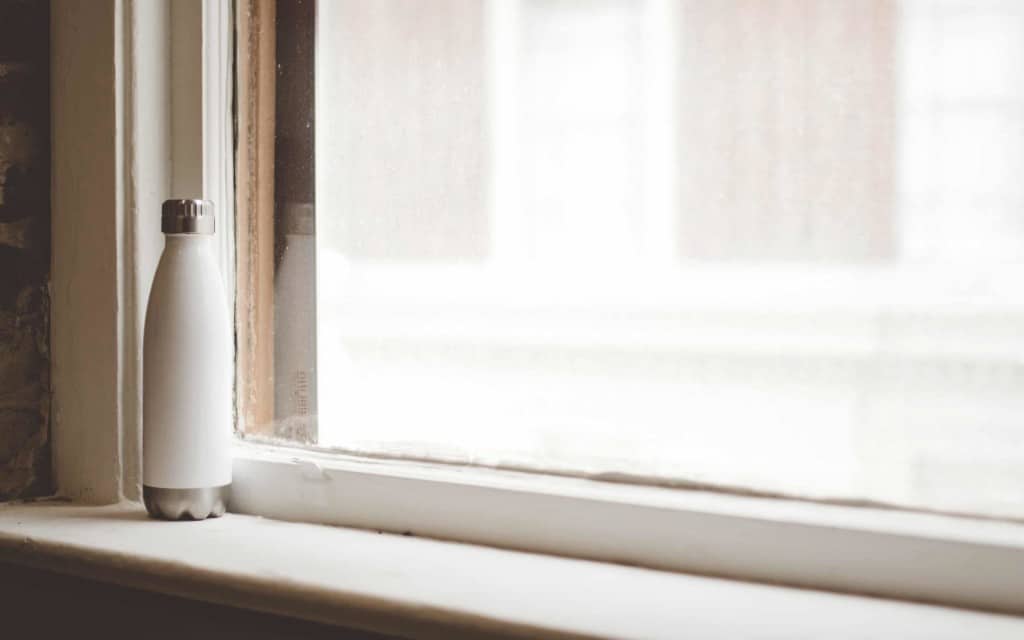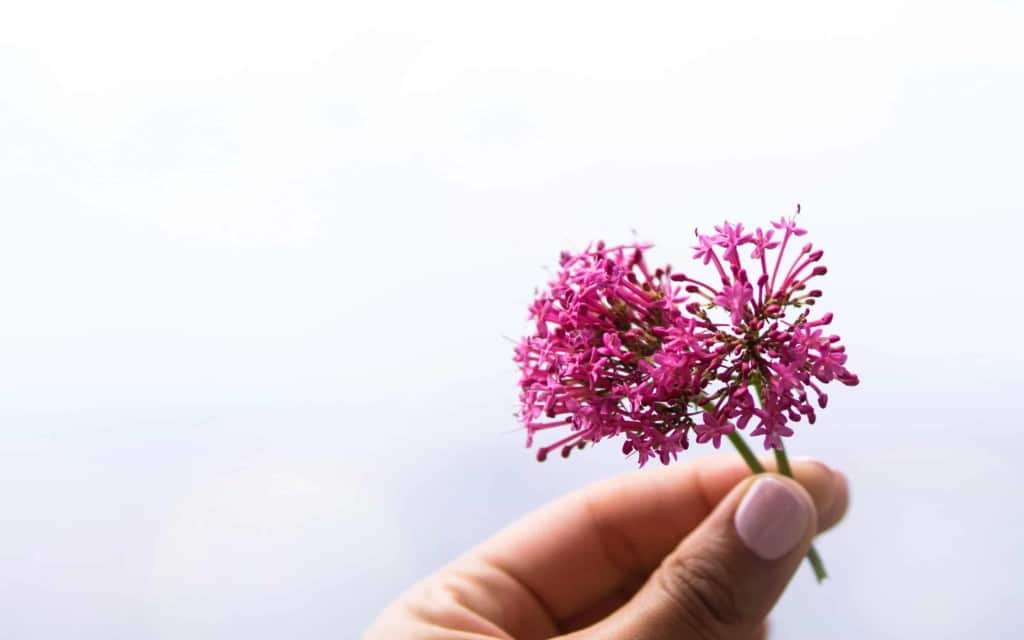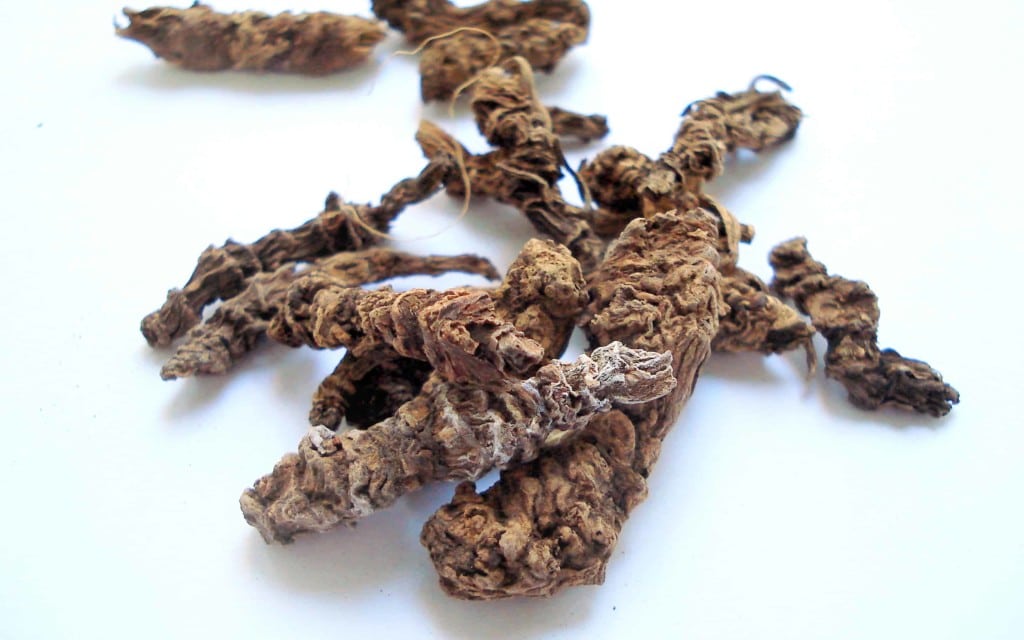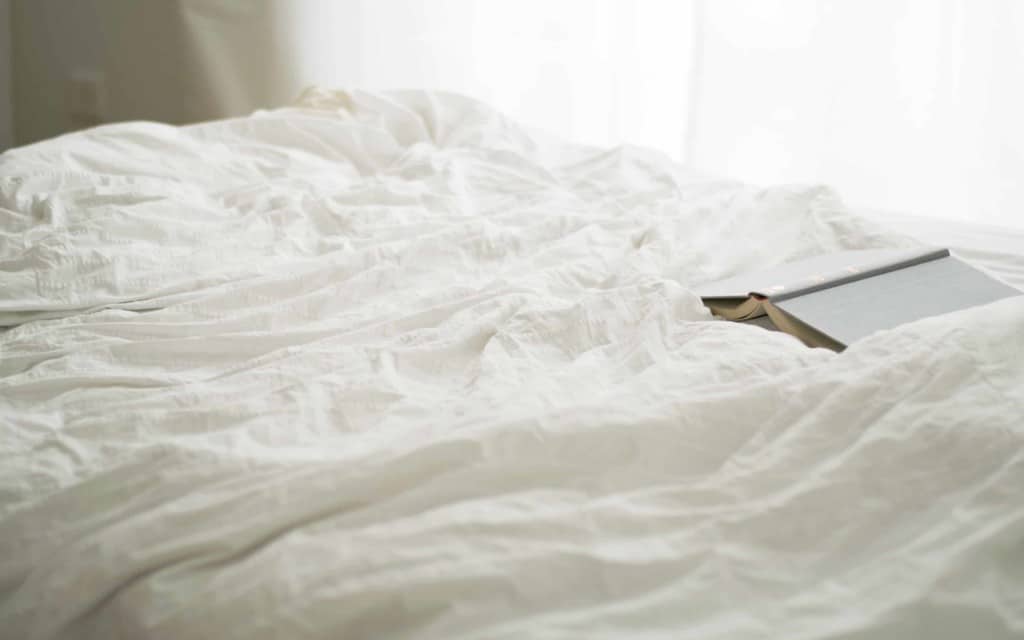Thinking of using valerian for sleep?
Often referred to as “Nature’s Valium”, valerian root has a unique calming effect that’s ideal for anyone suffering from stress, anxiety, or insomnia. For centuries, the valerian plant has been at the centre of countless treatment strategies for better sleep and tranquillity.
The question is, can an herbal substance really change your life? Is valerian root like Valium?
There are plenty of communities that seem to think that the answer is yes. Since the age of Ancient Rome, people have turned to valerian as a safe and subtle way to ease the mind and relax the body.
What’s more, research into this substance tells us that the compounds within the plant can produce higher feelings of drowsiness and calm.
Today, we’re going to explore the positive and negative sides of valerian as a solution for your restless nights. We’ll find out once and for all whether this natural remedy is the best way to banish insomnia.
Is valerian a good sleep aid, or is it all just snake oil?
Read on to find out.

What is valerian used for? Understanding the valerian plant
Let’s start with the basics. What is valerian?
Otherwise known as Valeriana Officinalis, this flowering plant is native to both Asia and Europe. Valerian flower is a beautiful addition to any garden, growing over a metre in height in some spaces. However, its true benefits lie within its roots.
According to some experts, valerian use dates back to the Roman and Greek Empires, where famous names like Hippocrates recommended it for the treatment of nervousness, headaches, heart palpitations and trembling.
The only problem? You’re going to have to hold your nose when taking it, as most people describe the smell of valerian as similar to sweaty socks. Yuck.
Scientific research into the benefits of valerian for anxiety, sleep, and stress have led to the creation of various tinctures and teas.
Today, the substance is available as a tablet, capsule, essential oil, and in different other formats too. Sometimes, the woodsy smelling extract is even used as flavouring for certain beverages and foods.
Before we continue check out these great products on Amazon.
Health benefits of the valerian root
Valerian root benefits are far reaching, covering everything from stress reduction to relief for stomach cramps. However, most practitioners recommend this substance for two specific purposes: insomnia, and anxiety.
Valerian tea for sleep and other products with valerian plant really can make people feel sleepy and promote a better night of rest.
Some studies also suggest that valerian will improve the quality of sleep. At the same time, experts believe that it could be an excellent and safe alternative to prescription anxiety drugs like Valium and Xanax.
Though there is scientific evidence available to support the benefits of the valerian plant, ongoing research is needed.
For now, the studies are somewhat mixed. One report from the University of California found no benefit in using valerian root in 1,550 people with insomnia and anxiety. Other research (as you’ll see below) suggests the opposite.
Other valerian root benefits to consider
In this article, we’ll be primarily focusing on the benefits of using valerian for sleep and anxiety. However, it’s worth noting that this substance has other effects too.
Because it potentially changes the chemical composition of the brain, the valerian plant can change the way a person feels in several different ways.
For instance, it can:
- Reduce hot flashes: Some doctors believe valerian root is excellent for minimising hot flashes in women during menopause. Valerian is a phytoestrogenic herb that have estrogen-like complexes, hence it might work as estrogen.
- Relieve pain: Studies suggest that valerian may reduce the sensitivity in specific nerves, and therefore act as an effective pain reliever. The substance may also have an analgesic effect on the muscles, which helps them to relax, relieving pain and headaches.
- Regulating blood pressure: The properties of valerian for sleep and anxiety are also helpful at regulating blood pressure. Some experts recommend drinking valerian tea to help relieve high blood pressure.
- Help with benzo withdrawal: Benzo withdrawal is a term that refers to the uncomfortable symptoms a person experiences when they stop using benzodiazepines (sometimes used to treat insomnia). Studies suggest that valerian and valerian tea for sleep can help here.
- Relieve menstrual cramps: The muscle relaxant properties of valerian root are also useful for reducing the effects of menstrual cramps. According to one study, the valerian root is excellent for calming uterine contractions, which may lead to higher levels of menstrual pain.

Why does valerian help you sleep?
So, does valerian root make you sleepy, and why is it so effective at promoting better rest?
Well, according to the studies available so far, the valerian plant contains a range of compounds that reduce anxiety and promote better sleep. Those compounds include many antioxidants, and an important substance called valerenic acid.
Over the years, valerian has received a lot of attention for its connection with gamma-aminobutyric acid, or “GABA.” This is a chemical messenger responsible for regulating the nerve impulses in your nervous system and brain.
Researchers indicate that low GABA levels relates to acute or even chronic stress levels, causing low-quality sleep and anxiety.
Valerenic acid within the root can inhibit the breakdown of GABA in your brain, leading to higher feelings of tranquility and calmness. That’s precisely how more significant anti-anxiety medications like Xanax and Valium work.
If that wasn’t enough, the valerian plant also contains linarin and hesperidin — antioxidants which seem to have sleep-enhancing properties.
One study discovered that treating mice with a small valerian root dosage improved their response to psychological and physical stress by balancing their levels of serotonin.
The valerenic acid in valerian root stimulates serotonin receptors. We all now serotonin is on of our happiness hormones. Serotonin is heavily implicated in the sleep-wake cycle.
Many of the compounds that make valerian good for sleep reduce the excessive activity the nervous system. The amygdala is the part of the brain responsible for severe emotional responses and stress. With enhanced levels of GABA and serotonin around you amygdala, you’ll feel less stressed and able to sleep.
Research also indicates that isovaleric acid in the valerian root may prevent or reduce involuntary muscle spasms and contractions. This is ideal for helping to prevent people from waking up during the night.

When does valerian work for sleep?
So, when does valerian work for sleep?
According to studies, around a third of the adult population has some issue with insomnia, and around 40% of adults are currently trying to use over-the-counter medication to address the issue.
While valerian root’s benefits are still under examination, there’s very little evidence that this substance is dangerous when taken in moderation. It could make it a suitable alternative to addictive sleeping aids. Basically anyone could give this substance a try.
As well as inducing sleep by creating feelings of relaxation and calm, studies indicate that valerian could encourage higher-quality sleep. This makes it a good option for people who struggle to get enough REM sleep for full body restoration.
Although we need more research into valerian for sleep, the majority of studies indicate that it reduces the time it takes to fall asleep, improves sleep quality and boosts sleep quantity. In other words, the outlook is pretty good.
One controlled study into 27 middle-aged and younger adults with sleep disorders found that 24 people had better sleep when taking an average valerian root dosage of 400mg. 12 respondents reported “perfect” sleep.
Scientists even believe that this substance could help with short-wave sleep — the phase that’s important for recharging and repairing the body.
A study in adults with insomnia discovered that a single dose of valerian plant helped to prompt a faster entry into deep sleep. Additionally, the time that the respondents spent in deep sleep increased within the 14 days that they took the substance.
Most studies into valerian for sleep have been conducted with adults. However, there are a few pieces of research that suggest that children might be able to benefit from the plant too.
One small eight-week report into children with sleeping disorders found that valerian significantly reduced the time it took for the children to fall asleep, as well as increasing total sleep time.

Valerian for anxiety: Nature’s tranquilizer
Sleep and stress have a close relationship.
The more anxious you feel at night, the harder it is for you to fall asleep. That’s because your brain is kept active with thoughts and chemicals, making relaxation practically impossible.
Fortunately, there are benefits to using valerian for anxiety too. As mentioned above, scientists believe that the valerian root increases the levels of a chemical galled GABA. This neurotransmitter regulates the nervous system and helps reducing anxiety too.
Drugs for anxiety, like Valium and Xanax, have a similar effect on anxiety, by working on the amount of GABA receptors available in the brain. The impact of the valerenic acid in valerian plant means you might achieve the same results without taking harmful medications.
Valerian for anxiety is therefore seen as a safer alternative to taking most anxiety medication. It simply doesn’t have the same risk of significant side effects. However, it’s essential not to take this medication at the same time as other antidepressants and calming medications, as they can interact negatively.
When you know how effective valerian can be at calming the mind and body, it’s no surprise that it’s so highly recommended for sleep issues and insomnia.
Additionally, it’s worth noting that the calming effects of this plant also make it a great option for lowering blood pressure and improving heart health.
Valerian root is one of the natural options available in the medical world for naturally reducing blood pressure and keeping it at a healthy level. This has a direct and positive impact on the health of your heart.
Valerian root for stress
Because valerian can improve the length and quality of sleep for many people, it also significantly supports daily stress management, making you feel less anxious and overwhelmed.
If you’ve ever felt stronger and more confident in yourself after a good night’s sleep, you’ll know how valuable the right rest can be to your state of mind.
By improving your GABA levels, valerian ensures that your mind and body can relax. In some studies, valerian root has been shown to suppress the psychological and physical impact of stress by maintaining more balanced levels of serotonin in the mind and body.
As mentioned above serotonin is the stuff that regulates your mood and makes you feel happier and calmer throughout the day.

What are the side effects of valerian?
Valerian root benefits may be significant and varied, but all of those advantages aren’t worth much if you have significant side effects to worry about too.
Before you start looking into valerian root as a solution to your sleeping problems, you need to know the answer to a few questions, namely:
- Is valerian safe?
- Can valerian be harmful?
- What are the side effects of valerian?
Most clinical studies into valerian for sleep and anxiety indicate that the substance is safe and well-tolerated, particularly for short-term use.
If there are any side effects to using this substance, they’re often quite minimal. For instance, some side effects might include headaches, feelings of dizziness, upset stomach, dry mouth, daytime drowsiness, and vivid dreams.
Probably the biggest concern that arises when answering the question “Is valerian safe?” is that there may be a slight increased risk of liver damage when people take this substance for extended periods.
There have been cases where people taking dried valerian root have had liver damage. However, it’s not certain whether this was caused by the valerian plant or problems with contaminants in the product.
Your best bet is to discuss your options with your doctor before you start taking valerian for sleep. A medical professional will be able to determine whether valerian is the right solution for you, based on any remedies you’re already taking.
It’s also worth noting that this herbal remedy often reacts negatively with certain depression medications, allergy drugs, cancer medications and anti-fungal drugs.

How to prepare valerian tea for sleep
There are many different ways to take valerian if you decide that you want to try this substance out for yourself. For instance, most people explore options like capsules, tablets, and even tinctures that can be added to foods and drinks.
The issue many people face is that there’s no set valerian root dosage to stick to. Doctors recommend staying somewhere in the region of 250 to 1,000 mg.
Usually, the best option is to start small and work your way up. The average person will experience the effects of valerian within 30 min. up to two hours.
One great way to experiment with your valerian root dosage somewhat safely is to use tea. Valerian tea for sleep is available over the counter, or you can make it yourself.
Most people describe the taste of this tea as woodsy and natural. The longer you brew the tea, the more significant the flavour will be. Available in both bagged and loose leaf options.
To make valerian tea for sleep:
- Place a valerian tea bag or tea infuser into a cup or mug.
- Heat water to boiling point and let it sit for a minute to reduce the temperature slightly.
- Pour the water over the tea bag, or tea leaves.
- Let the leaves steep for as long as required. If you want a lighter taste, stick with about two minutes. For a more intense flavour, 3 to 5 minutes is best.
- Remove the diffuser or bag before drinking.
Since the taste can be quite dramatic for some people, you might prefer to “soften” the flavour of valerian tea by adding honey or milk.
So, is valerian safe for you?
The valerian plant has been used for medicinal and relaxation purposes for thousands of years. You’ve probably seen this herbal substance in countless health stores, created in a number of different forms.
That’s because many medical and health experts believe that valerian is a safe and effective way to cope with mild anxiety and sleep disorders.
As a non-addictive botanical, it may be particularly useful for people who are prone to addiction with certain medications.
Many standard drugs for sleep that are offered by pharmacists and doctors can end up being addictive, which can leave you with greater problems in the long-term when you’re exposed to issues like withdrawal.
The main problem that people have with valerian for anxiety and sleep is that it’s not a fully regulated substance like other medications. Although valerian is restricted — it’s as a food substance and not a drug.
This means that you’ll need to be very careful about which products you purchase. Usually, you can find out some necessary information about the plant on the back of the packaging. Look for any evidence that there are added chemicals or preservatives in the valerian root that might make it more dangerous for you.

Should you try valerian root?
Only you can decide whether you should try valerian for sleep or not. See recommended products below this article.
As a natural substance, there are worse things to consider than the valerian plant if you have trouble with insomnia. Ultimately, there are very few side effects or dangers associated with this substance — particularly when it’s taken in small doses.
If you’ve been trying everything to battle your sleeping problems up until now, from medication and meditation to better sleep hygiene, using valerian tea for sleep, or some other version of this natural substance could be a good way forward. T
he plant is widely respected and used by the general population, and it has been recommended by doctors in the past.
You may even have tried valerian for sleep before without realising it. This root is typically used in a lot of calming tea blends.
For a quick way to address issues of insomnia and anxiety, valerian is well worth a try. If you need more advice on how you can overcome your problems with sleep, don’t forget to subscribe to Siestio. We’ll help you to find the rest you need.
Siestio. Sleep Matters.
General advice disclaimer
This article contains general tips and advice. However, no diet or exercise program should be started without consulting your physician or other industry professional first. For more information read our full disclaimer here.








